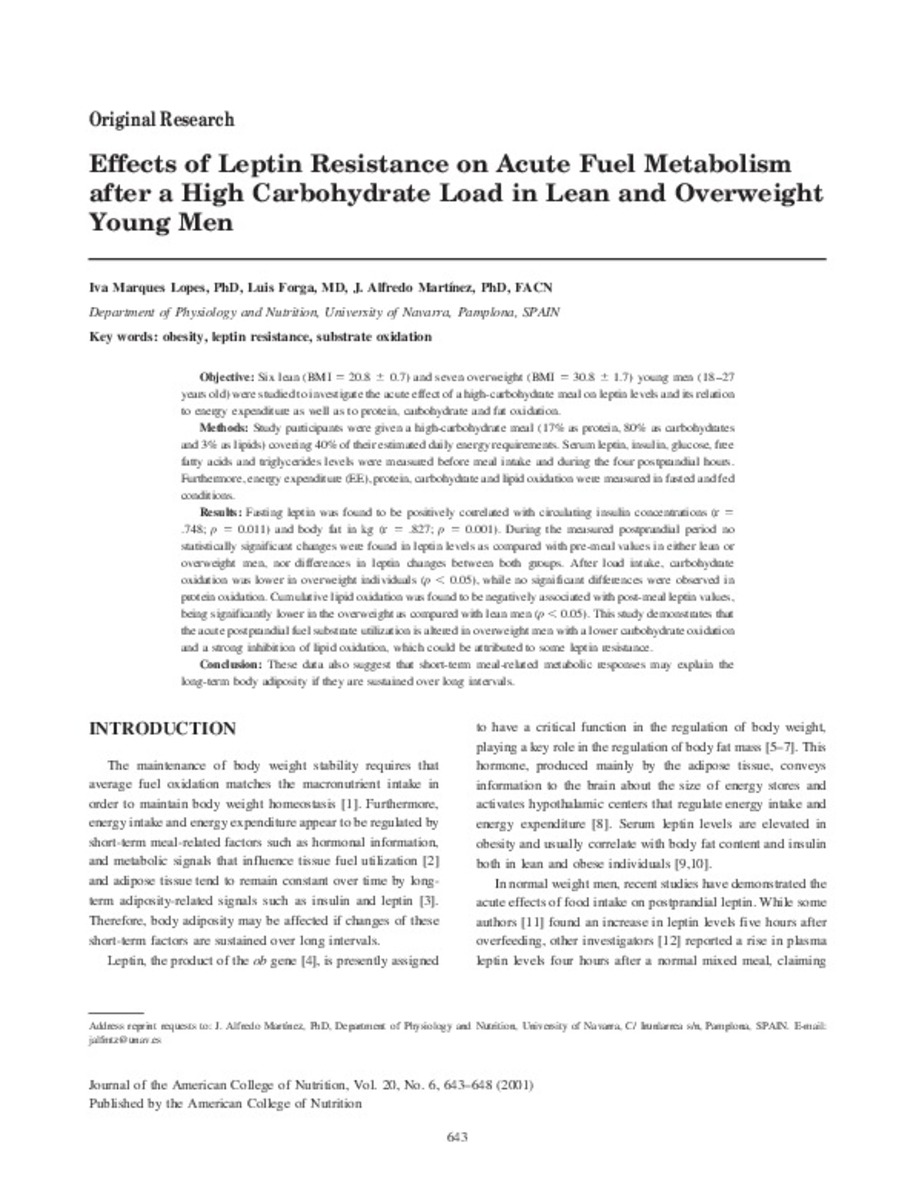Effects of leptin resistance on acute fuel metabolism after a high carbohydrate load in lean and overweight young men
Keywords:
Obesity
Leptin resistance
Substrate oxidation
Publisher:
American College of Nutrition
Citation:
Lopes IM, Forga L, Martinez JA. Effects of leptin resistance on acute fuel metabolism after a high carbohydrate load in lean and overweight young men. J Am Coll Nutr 2001 Dec;20(6):643-648.
Statistics and impact
0 citas en

0 citas en

Items in Dadun are protected by copyright, with all rights reserved, unless otherwise indicated.







